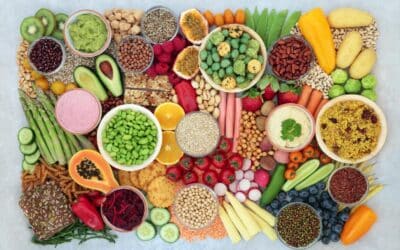Rapid climate change is a global phenomenon caused by the burning of fossil fuels, deforestation, animal agriculture, and other human activities. The causes and effects of climate change are global in extent and impact all aspects of our lives—including economic, social, and political systems—as well as overall environmental conditions. Given the scope of climate change, addressing its causes and impacts requires an understanding of how we can make small steps toward global change.
Switch4Good is an evidence-based nonprofit that promotes optimal health in all of us. Looking at facts over falsehoods, we’re dedicated to exposing the lies and myths propagated by the dairy industry—an industry that harms us and our families, creates products that sicken our communities, and whose production methods poison our air.
Our climate commitment involves complete dedication to a plant-based diet free from animal products, energy efficiency and renewable energy sources, waste reduction recycling and composting, reducing business travel, continuing to support a work-from-home approach for our employees, and educating the public on the cross-section of diet change and climate change.
100% Plant-Forward Diet Commitment:
- Overall, total food production contributes around 26% of global greenhouse gas emissions.
- The industrial animal agriculture system (where 99% of the world’s meat, dairy, and eggs come from) is the worst offender, responsible for around 14.5% of global emissions (i.e. greater than emissions from the entire transportation sector).
But the story of industrial animal agriculture isn’t limited to carbon emissions.
- 23 percent of the world’s freshwater goes to the industrial animal agriculture system, while nearly 700 million people suffer from water scarcity.
- 40 percent of the world’s grain is fed to farm animals, while nearly a billion people go to bed hungry every night.
- In addition, the global livestock system is responsible for soil degradation, air and water pollution, dead zones, deforestation, and biodiversity loss.
We are 100% committed to living a completely plant-based lifestyle that includes zero meat, dairy, eggs, ocean-caught fish, farmed fish, crustaceans, or mollusks.
Ref: Zacharias Nil, Stone Gene. Eat for the Planet: Saving the World One Bite at a Time. Abrams. 2018 March 20.
Leave No Trace:
- Recycling – Setting up and managing recycling stations at events and focusing on food composting and recycling in our homes.
- Food Donation – Where possible, packaging and donating all unused food to local food banks, shelters, or other appropriate partners.
- Up-cycling – Capturing, repurposing, and/or up-cycling our leftover merchandise inventory and repurposing shipping materials.
Climate Smart Transportation and Merchandise:
- Transportation – Choose electric and alternative fuel vehicles and public transportation when possible, offset emissions for travel that burns fossil fuels.
- Merchandise – Reviewing our current supply chain, exploring opportunities for reduced impact, OR source 100% merchandise with innovative reuse/circularity-based supply (e.g., shirts made out of recycled ocean plastics or that come out of landfills) and commitment in our B2B work to use companies who also have a robust climate commitment in place.
- Sustainability standards for commonly purchased products: Paper, office supplies, etc.
- Reusable Vessels – Encourage the use of reusable vessels versus single-use disposable.
- Single-Use Plastic Packaging and Swag – Ensure no single-use plastic is used in packaging or swag items.
External Communications:
- Environmental Media and Communications – Create communication materials and assets for public-facing communications regarding the S4G environmental commitment and program. This includes talking points for how to address climate issues when addressing diet change, graphics, co-branded webpages, videos, and other digital and verbal communication methods.








